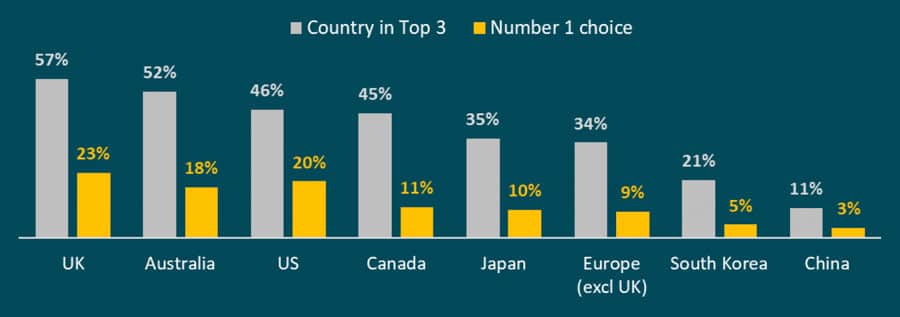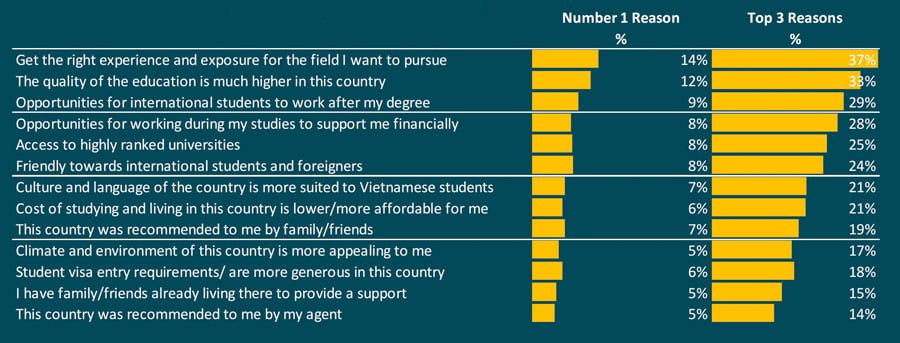Parents and in-person counselling key factors in recruiting Vietnamese students
- More than four in five Vietnamese students responding to a mid-2022 survey stressed the importance of parents as key influencers in their study abroad choices
- Student and parent-respondents alike added that in-person counselling from institutional representatives, education agents, or school counsellors was key to their planning for study overseas
Vietnam remains one of the most important growth markets in Southeast Asia. It has the region’s fastest-growing economy, and its middle class is expected to grow by more than 40 million people by 2025. It is also the fourth-largest sending market for Australia, the sixth-largest for the US, the number five sender for Canada, and a top 20 non-EU source for the UK as well.
INTO University Partnerships recently shared findings from a June 2022 survey of 1,000 Vietnamese "Generation Z" students, all between 16 to 25 years old and all actively considering study abroad.
The survey found that Vietnamese students are primarily motivated to study abroad by a desire to improve their English skills and by an interest in gaining skills and qualifications that will boost their careers.

Survey respondents, both students and parents, also clearly indicated that costs of study abroad and safety (especially with regard to how the pandemic is impacting health and well-being of students) were their key concerns around study abroad.

Further, more than four in five student-respondents stressed the importance of parents as key influencers in their study abroad choices. Parent-respondents echoed the point and indicated that they especially influence choices around study destination, choice of institution, and field of study.
“As the ones who typically support their children to pursue an international degree, parents play a very significant role in the choices Gen Z students make around studying abroad,” said Ms Bich Ngoc Vu, INTO’s senior country director for Vietnam. “We in the international education sector must understand that, at least in the context of Vietnam, we are oftentimes communicating with a multi-generational audience, and figure that into our approach to better serving students.”
Face-to-face is key
Roughly nine in ten survey respondents – both students and parents – said that online information sources were most important in their research for study abroad. These include search engines, institutional websites, and social channels. Perhaps not surprisingly, given this heavy emphasis on digital channels, printed brochures or prospectus were rated as the least-helpful sources.
A similar proportion (92%) said that face-to-face engagement is important or very important, including meeting with university representatives or education agents and seeking advice from teachers and school counsellors.
“Our research makes clear that students and their parents are after a streamlined study abroad experience from discovery to enrolment,” said Ms Vu. “Face-to-face engagement with university representatives and recruitment agents enables them to make the best study abroad decisions when faced with overwhelming amounts of information.”
Most popular destinations
Respondents were also asked to rate their top three choices (and number one choice) for study destination. Not surprisingly, given the heavy emphasis on attaining or improving English language skills among Vietnamese students, English-speaking destinations were the clear leaders in this respect.

"It is a little surprising that the UK appears as the most in-demand source market for a foreign degree in this survey, given that historically, significantly larger numbers of Vietnamese have enrolled in US higher education," adds INTO. "However, UK degrees are also a popular choice via transnational education arrangements. There are almost twice as many Vietnamese students enrolled onto a UK degree wholly overseas versus within the UK."
Students further explained that gaining advantage for their careers, quality of education, and opportunities to work during and after study were among the key factors influencing their choice of study destination.

















